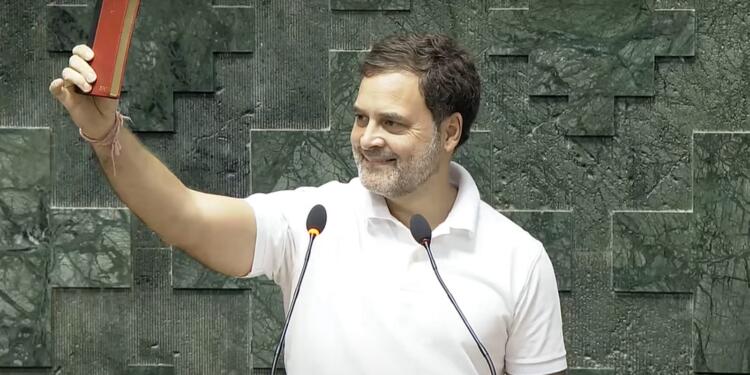With the recent appointment of Rahul Gandhi as the Leader of Opposition (LoP) in the 18th Lok Sabha, a significant shift has occurred in India’s parliamentary landscape. This position, vacant for a decade, carries immense importance and responsibilities. Let’s explore the key aspects of this role and its impact on democratic processes.
Opposition’s Voice: Challenging Government Policies
A primary duty of the LoP is to critically examine and question government policies. While opposing, the LoP must maintain a delicate balance – challenging decisions without obstructing parliamentary functions. This role demands effective scrutiny to ensure government accountability to both the legislature and the public.
In contrast to the ruling party, the LoP must present alternative viewpoints and solutions. This opposition helps create a robust democratic dialogue, fostering better policy-making and governance.
The Shadow Prime Minister
Interestingly, the LoP is often referred to as the “shadow Prime Minister.” This title reflects the readiness to form an alternative government if circumstances permit. Consequently, the LoP’s words and actions carry substantial weight, especially concerning national interests.
The concept of a shadow cabinet further emphasizes this role. The LoP, along with their team, must be prepared to take on governmental responsibilities at any moment. This preparedness ensures a smooth transition of power if needed.
Facilitating Meaningful Debates
When crucial issues arise, the LoP can demand parliamentary debates. This power helps prevent the government from sidestepping important matters. Additionally, the LoP plays a vital role in fostering smooth parliamentary operations.
By initiating debates, the LoP ensures that diverse perspectives are heard and considered. This practice enriches the decision-making process and upholds the principles of democratic governance.
Consultation on Critical Matters
In certain situations, particularly those involving foreign relations or defense policies, the Prime Minister may seek the LoP’s input. During national crises, the LoP often stands united with the government, demonstrating national solidarity.
This collaborative approach, despite political differences, showcases the maturity of the democratic system. It also ensures that crucial decisions reflect a broader national consensus rather than partisan interests.
Opposition Beyond Borders
While the LoP may vehemently criticize the government domestically, a different approach is expected internationally. When abroad, the LoP should refrain from partisan politics, presenting a unified national front.
This practice upholds India’s image on the global stage and reinforces the idea that despite internal disagreements, the nation stands united in international affairs.
Key Appointments and Committees
The LoP participates in selection committees for various high-ranking officials and serves on crucial parliamentary committees. This involvement ensures balanced representation in important decision-making processes.
Some key appointments that involve the LoP include:
– Director of the Central Bureau of Investigation
– Chief Election Commissioners
– National Human Rights Commission chairperson
– Chief Vigilance Commissioner
The LoP’s participation in these selections adds a layer of checks and balances, promoting transparency and fairness in the appointment process.
Perks and Privileges
The position comes with several benefits, including:
– A monthly salary of ₹1 lakh
– Daily allowances for official duties
– Constituency and furniture allowances
– Office expense provisions
Additionally, the LoP enjoys certain ceremonial privileges and is provided with dedicated office space and support staff in Parliament House. These provisions ensure that the LoP can effectively carry out their duties without financial or logistical constraints.
Challenges and Opportunities
The role of the LoP is not without its challenges. Balancing constructive criticism with national interests requires great skill and judgment. The LoP must also navigate media scrutiny and public opinion while maintaining the integrity of their position.
However, these challenges also present opportunities. A skilled LoP can significantly influence public discourse, shape policy debates, and contribute to the overall strengthening of democratic institutions.
In conclusion, the Leader of Opposition holds a pivotal role in India’s democratic framework. By effectively fulfilling these responsibilities, the LoP contributes significantly to the nation’s governance and political discourse. As Rahul Gandhi steps into this role, all eyes will be on how he navigates these complex duties and shapes the opposition’s stance in the coming years.
ALSO READ: A Pakistani team conducted inspections in India, but why?

























